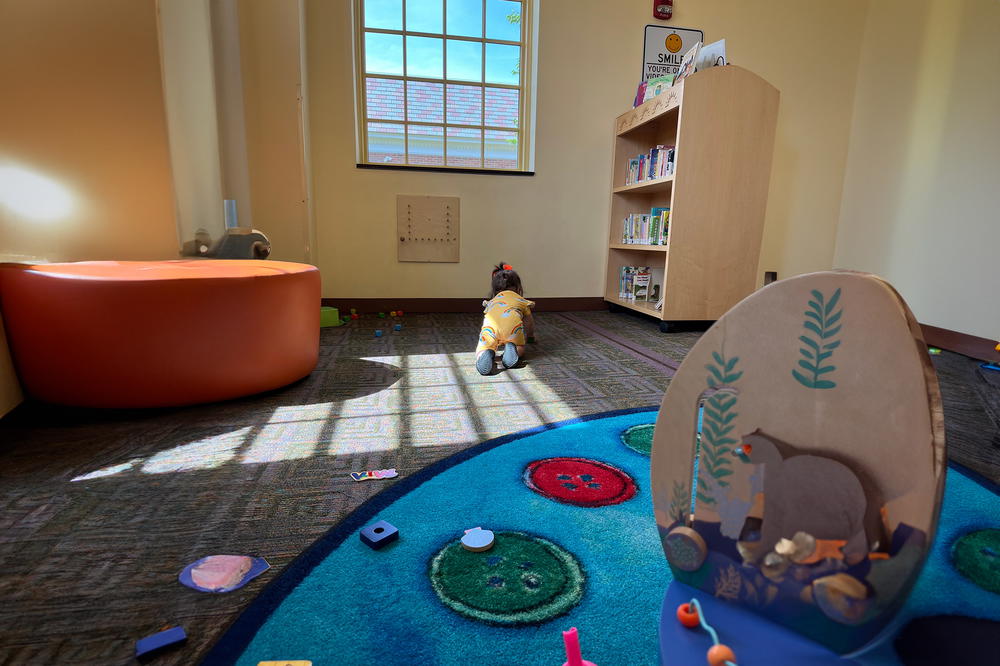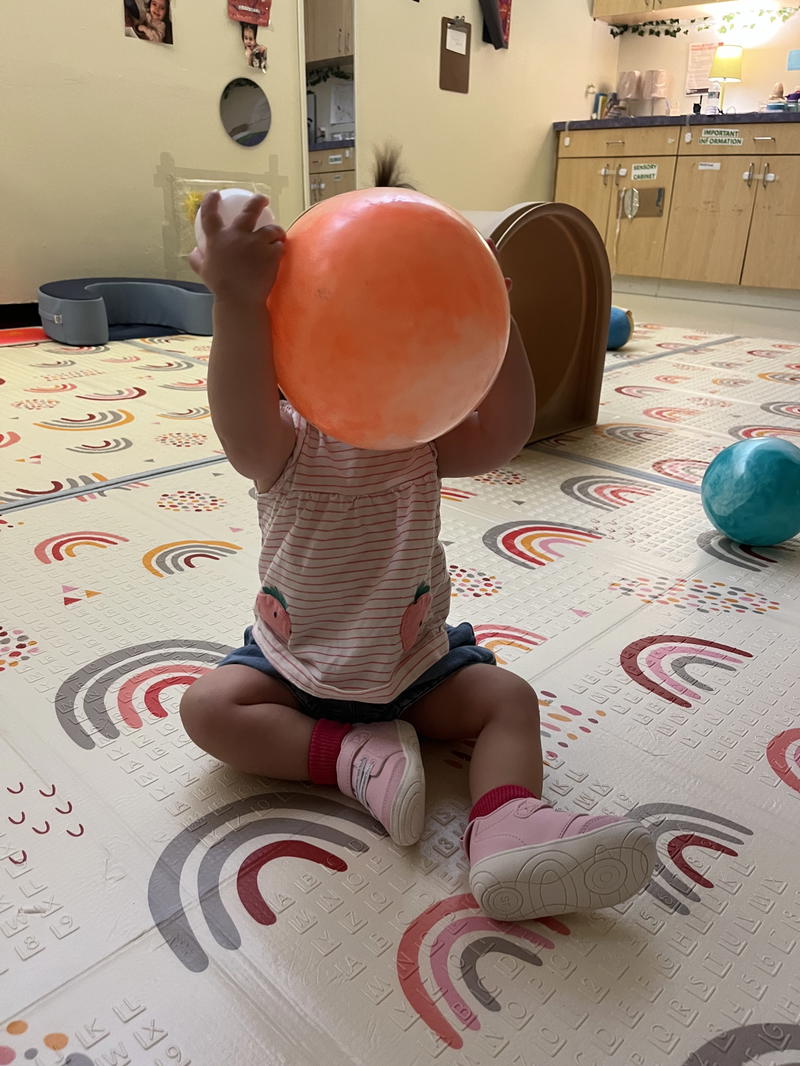When Should I Send My Baby to Daycare? (How to Decide When to Start)

Figuring out when to start daycare, and at which age, can be one of the hardest decisions to make. See when we started our baby in daycare and all the factors that went into making this decision.
This article may contain affiliate links. We earn a small commissions when you purchase via those links — and it's free for you. It's only us (Becca & Dan) working on this website, so we value your support! Read our privacy policy and learn more about us.
There are a few factors that led us to starting daycare when we did, as well as factors that helped our friends and family start daycare for their child when THEY did.
I think the main ways to answer the question of, “When should I start my child in daycare?” is that every baby and toddler is different. It goes without saying that every family’s situation and jobs are also different.
Given that there are SO many differences from family to family, I can tell you a bit about when we started our infant in daycare, and how we decided to do that.
Length of parental leave
This factor is the one that will likely have the heaviest weighing in on when you start daycare.
In our situation, we had a unique set of circumstances: I was laid off during maternity leave, so my 10 weeks of leave before our daycare start date became 9 months.
Originally, I had 10 weeks of maternity leave. Then, I found out that I could get 12 weeks from the state, for FMLA leave. That added up to 22. Dan had 16 weeks of parental leave, 4 of which he took in the first month of our baby’s life, and the rest of which he planned to take after my 22 weeks was done.
But I got laid off! So we never had to scramble, and we thanked our lucky stars that we could be flexible on our daycare start date.
For most people, anywhere between 6-10 weeks is standard for a maternity leave in most professions, but some of my friends got only two weeks, and some got 6 MONTHS. It really can vary so widely, and it’s another one of those things surrounding childbirth and parenting that is not very fair and equitable. Most families start daycare (or hope to start!) when parental leave is over.
Infant readiness
“Infant readiness” is the way I came up with titling this topic: “Is my baby really ready to start daycare?” and honestly, you may never really know.
Here are a few scenarios in which your child might not be ready for daycare (and you, as a parent, may not be ready for them to be out of your hands either):
- Your baby has an unresolved medical condition
- Your baby is exclusively nursing and has never had a bottle
- Your infant or toddler has really extreme separation anxiety
Overall, I think an infant being ready for daycare is, in the plainest sense, can your infant be away from you for 8 hours a day?
Parent readiness
Hey, parents are a part of this equation too! Are you, as a parent, ready to send off your child and put them in the hands of strangers (albeit early childhood care-certified ones) for 40 hours a week?
Like I mentioned above, daycare means your baby (or kid) will be away from YOU every day. If you’re not emotionally ready to let go of our your infant at the 12-week mark, or the 12-month mark, you can look for other methods of childcare like a nanny or babysitter (that is, if you work from home and you’ll be around). Consider the benefits of a daycare vs. nanny, first.
If you’re not ready to send your child to daycare at 4 months, or 14 months, you can look for ways to delay. Or, you can look for daycares that allow soft starts, like doing a half-day or 3-day-a-week program, which may work well if you’re a parent who has been working from home with a baby.
Availability of daycare (waitlists)
The availability of daycare itself may determine when you start daycare. We visited several daycares (only three, actually), in our area. I had the best gut feeling about the one at which we had the best tour, although it was the farthest away. Regardless, I knew waitlists was competitive, and I knew that basically, we were only going to HAVE daycare for our baby if we got OFF a waitlist!
So, I followed up politely with my #1 choice, and we were able to get our first-choice start date in an “infant room” the month we wanted to start (September). I didn’t hear of anyone not getting into daycare at all, but I did hear from families who moved to the area at the end of summer that they were getting nervous that they may not get off waitlists and get into daycare.

“School year” start dates
I found out by learning more and more about the ins and outs of daycare that some daycares work with a “school year,” just like preschool. This makes sense, if there is a preschool (ages 2 and up) on the premises, to make a fully-encompassing early childcare center or school.
Our daycare has “starts” in January, and in September, like two semesters, and the school even considers summer to be a separate “session” that we had to opt into (and of course, pay for, as usual). Because of vague communication, I wasn’t even aware that our daycare had a January start date.
We put ourselves on the waitlist for the September start, which I thought was the only possible start, when I was 8 months pregnant with our baby! We calculated that with a September start, our daughter would be 9 months old. I was happy to delay, so that I could have more time with our baby, and this factored in when we were deciding how to choose a daycare.
Find out from several daycares if they have formal start dates like September or beginning of the next year (January), or determine if you can find childcare that may allow starts or late additions of infants at any point in the year.
Minimum age for daycare
Where I live, and in a lot of the country from what I hear, infants are typically not allowed to be in daycare until they are 12 weeks old or three months. This makes sense, as the “newborn phase” is said to end around the 12-week mark, and this is also when a lot of women feel ready to go back to work and be away from their infant.
However, not all jobs give 12 weeks of parental leave (see the bit on parental leave, above!). And for this reason, some families might find out that they have to scramble and find childcare from when both parents need to go back to work, until their baby is allowed at a daycare.
I knew quite a few people who had to bridge the gap between maternity leave and daycare starts with hiring a full-time nanny around the 6-week mark in their baby’s life.


